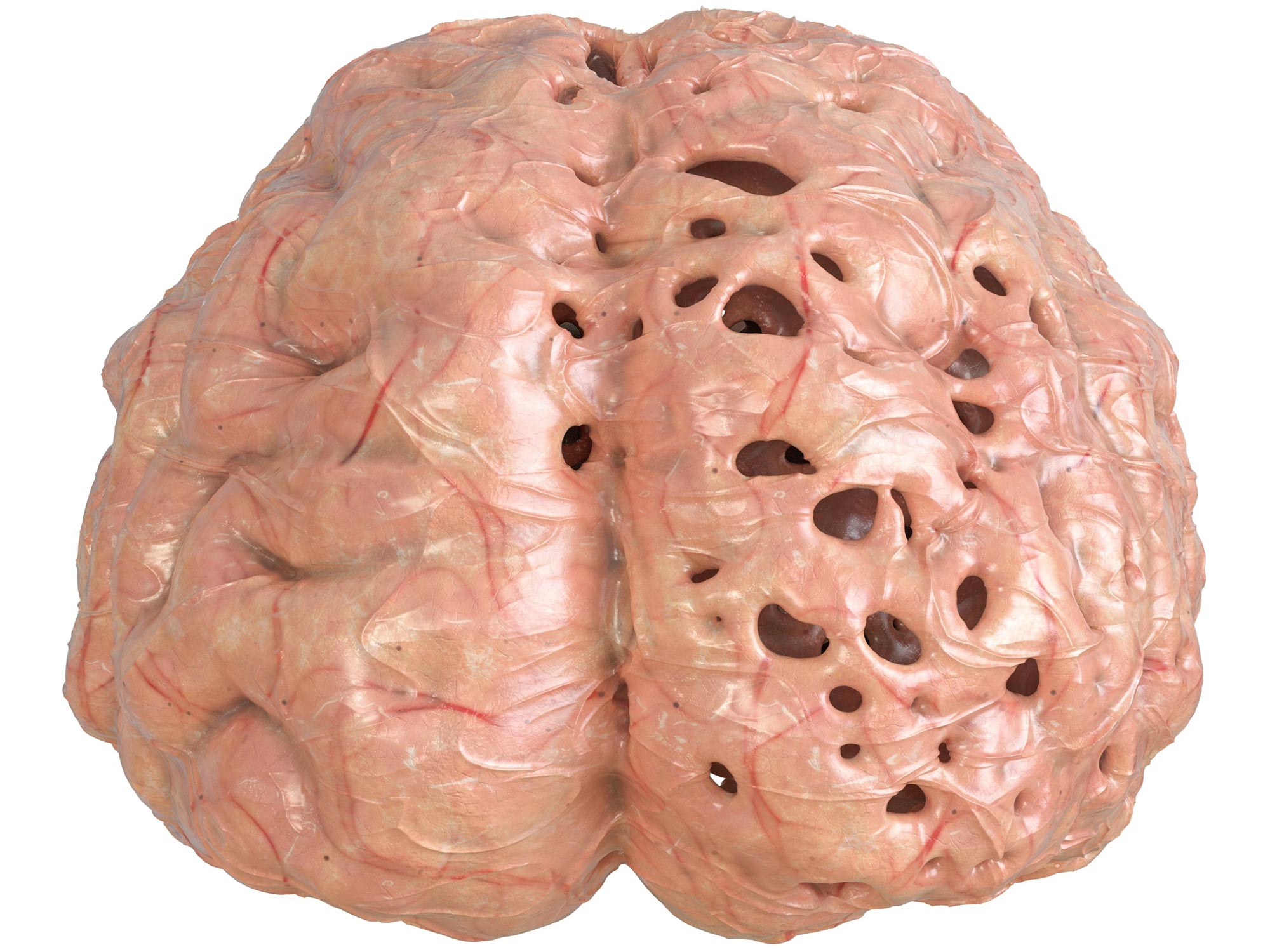Eine neue Studie, die in der Fachzeitschrift Neurology veröffentlicht wurde, hat einen Zusammenhang zwischen schwerer Schlafapnoe und reduzierten Gehirnvolumina in der medialen Temporallappenregion, einschließlich des Hippocampus, bei Menschen mit Amyloidplaques, einem frühen Anzeichen der Alzheimer-Krankheit, festgestellt. Dieser Zusammenhang, der auf einen Verlust von Gehirnzellen hinweisen könnte, wurde bei Personen ohne Plaques nicht beobachtet. Allerdings konnte die Studie keinen kausalen Zusammenhang zwischen Schlafapnoe und vermindertem Gehirnvolumen belegen.
Eine kürzlich durchgeführte Studie ergab einen Zusammenhang zwischen schwerer Schlafapnoe und einem verringerten Gehirnvolumen in Bereichen, die für das Gedächtnis von entscheidender Bedeutung sind, bei Personen, die frühe Anzeichen einer Schlafapnoe zeigen.[{“ attribute=““>Alzheimer’s disease. The study emphasizes the need for further research into sleep-disordered breathing treatments to potentially improve cognition and delay neurodegeneration.
Studies have shown that sleep apnea is related to an increased risk of dementia. A new study looks at the relationship between sleep apnea and brain volume. The study is published in the May 31, 2023, online issue of Neurology, the medical journal of the American Academy of Neurology.
The study compared people who have amyloid plaques in the brain that are an early sign of Alzheimer’s disease but do not have any memory problems to people with no amyloid plaques.
“We found that people with amyloid plaques who had more severe sleep apneas also were more likely to have lower volumes in the medial temporal lobe area of the brain, including the hippocampus, which plays a role in memory and Alzheimer’s disease,” said study author Geraldine Rauchs, PhD, of Inserm in Caen, France. “The people who did not have amyloid plaques did not have this lower brain volume, even if they had severe sleep apneas.”
The study does not prove that sleep apnea causes lower brain volume; it only shows an association.
The study involved 122 people with an average age of 69 who did not have memory problems. A total of 26 people had amyloid plaques in their brains. Participants had brain scans, took tests of their memory and had an overnight sleep study done in their homes. The memory tests were repeated after an average of 21 months.
In people with amyloid plaques, having more severe sleep apneas was associated with having lower brain volume in the medial temporal lobe area of the brain which may suggest loss of brain cells. This connection was not found in people who did not have amyloid plaques.
“Our results suggest that some people may be more vulnerable to the adverse effects of sleep apnea,” Rauchs said. “People who are in the very early stages of the Alzheimer’s continuum showed a specific vulnerability to sleep apneas. Further studies should look at whether treating sleep-disordered breathing could potentially improve cognition and prevent or delay neurodegeneration.”
In the whole group, lower volumes in the hippocampus at the beginning of the study were associated with lower scores on a test of episodic memory at the end of the study.
There were no associations between sleep apneas at the beginning of the study and memory scores at the end of the study.
A limitation of the study was that the same version of the verbal learning test was given at the start and end of the study, so it’s possible that some memory decline may have been minimized due to familiarity with the test.
Reference: “Association of Sleep-Disordered Breathing and Medial Temporal Lobe Atrophy in Cognitively Unimpaired Amyloid-Positive Older Adults” by Claire André, Elizabeth Kuhn, Stéphane Rehel, Valentin Ourry, Solène Demeilliez-Servouin, Cassandre Palix, Francesca Felisatti, Pierre Champetier, Sophie Dautricourt, Paul Yushkevich, Denis Vivien, Vincent de La Sayette, Gaël Chételat, Robin de Flores and Géraldine RAUCHS, for the Medit-Ageing Research Group, 31 May 2023, Neurology.
DOI: 10.1212/WNL.0000000000207421
The study was supported by the European Union’s Horizon 2020 Research and Innovation Program, Inserm, Region Normandy, and the MMA Corporate Foundation of Entrepreneurs of the Future (Fondation d’Entreprise MMA des Entrepreneurs du Futur).









